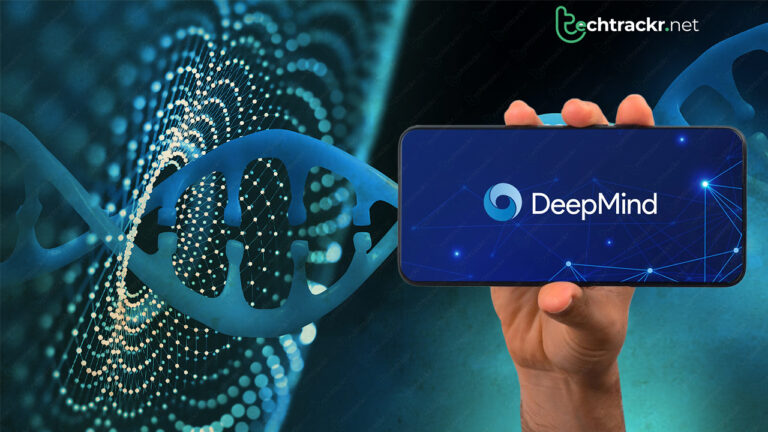
Google DeepMind just dropped its brand-new AI tool that can forecast if DNA mutations are prone to triggering genetic diseases. The hope is that it will speed up diagnoses and aid in the creation of life-saving therapies.
The fresh AI model, dubbed AlphaMissense, makes forecasts about missense mutations, which happen when a single letter is swapped in the DNA sequence. These letters match up to four nucleotides: adenine (A), cytosine (C), guanine (G), and thymine (T). This leads to a distinct amino acid in the protein, which, in turn, can impact its function.
Typically, humans harbor more than 9,000 missense alterations, which, for the most part, are harmless. But in certain instances, they can trigger severe illnesses like cystic fibrosis, cancer, and sickle-cell anemia.
Also Read: Here’s what EU’s 5 futuristic technologies will test in space
How Well can DeepMind’s AlphaMissense predict?
DeepMind ran AlphaMissense on all 71 million potential missense variations. The model classified 89% of them as either harmless or causing disease. The company emphasizes this is a significant contrast to the mere 0.1% pinpointed by human specialists.
The AI tool relies on DeepMind’s AlphaFold model, which last year anticipated structures for almost every known protein in science. To teach AlphaMissense, the company tweaked AlphaFold using markers that differentiate variations observed in humans and closely related primates.
The crew working on AlphaMissense emphasizes that the outcomes showcase the tool’s superior performance compared to other computer-based techniques, as well as its unparalleled precision in making predictions from the lab.
“Together, AlphaMissense predictions have the potential to accelerate our understanding of the molecular effects of variants on protein function, contribute to the discovery of disease-causing genes, and increase the diagnostic yield of rare genetic diseases,” the team wrote in the paper.
Can AlphaMissense be used in clinical purposes?
Worth mentioning, DeepMind is spreading the word to the wider scientific world, which can now get their hands on the list of missense mutations, the AlphaMissense code, and the Ensembl Variant Effect Predictor plugin.
The team points out that the forecasts should be considered along with other evidence and aren’t meant for direct use in clinics. Indeed, the AI tool’s worth stems from its capability to accelerate procedures that would otherwise demand arduous, costly, and time-consuming research.
The push could assist scientists in speeding up the search for the genes behind diseases, especially the rare ones, and pinpoint potential new areas for creating drugs. However, these tools haven’t been commonly applied, and they would require thorough testing before they could be used in actual medical settings.
Also Read: EU’s AI Act might be bad news for small firms
AlphaMissense is nothing close to AlphaFold
According to Ewan Birney, who’s with the European Molecular Biology Laboratory, AlphaMissense doesn’t quite have the same “wow” factor as AlphaFold. Birney, the joint director of the European Bioinformatics Institute, has collaborated closely with DeepMind before but wasn’t part of this particular study.
Birney reckons it could be super handy for docs to swiftly spot genetic issues in kids. He points to the RPE65 gene, responsible for causing blindness if not treated with gene therapy shots in the eye. AlphaMissense might speed up the process of ruling out other possible genetic glitches in a patient’s DNA (which could be a ton), ensuring the treatment hits the mark.
Apart from deciphering the impacts of tiny letter changes, AlphaMissense showcases how AI models can have a wider impact in biology. Since it wasn’t exclusively trained to tackle missense problems but rather to grasp the whole range of proteins in biology, models like this could go way beyond single mutations. They might lead to a deeper comprehension of our entire genetic code and how it operates, from the individual recipes to the whole cooking experience.
Everything depends on AphaMissense’s reliability
According to Prof Joe Marsh from Edinburgh University, who wasn’t part of the project, AlphaMissense seems to have a lot of promise.If the medical pros give the thumbs up to AlphaMissense, its forecasts might hold more sway in diagnosing diseases down the line, he suggested.
Prof Ben Lehner, who leads a group in human genetics at the Wellcome Sanger Institute, mentioned that Al’s predictions should be double-checked by other scientists. Still, it appears to be pretty sharp at distinguishing which DNA tweaks lead to illness and which ones don’t.
“One concern about the DeepMind model is that it is extremely complicated,” Lehner said (via The Guardian). “A model like this may turn out to be more complicated than the biology it is trying to predict. It’s humbling to realise that we may never be able to understand how these models actually work. Is this a problem? It may not be for some applications, but will doctors be comfortable making decisions about patients that they don’t understand and can’t explain?
Prof Ben Lehner pointed out that the DeepMind model effectively identifies the issues. However, he emphasized the importance of understanding not just what is broken, but also how it is broken, in order to effectively address it. Many researchers are currently focused on gathering extensive data to train upcoming AI models. These models are expected to provide insights not only on detrimental DNA alterations but also on the specifics of the problem and potential solutions.
